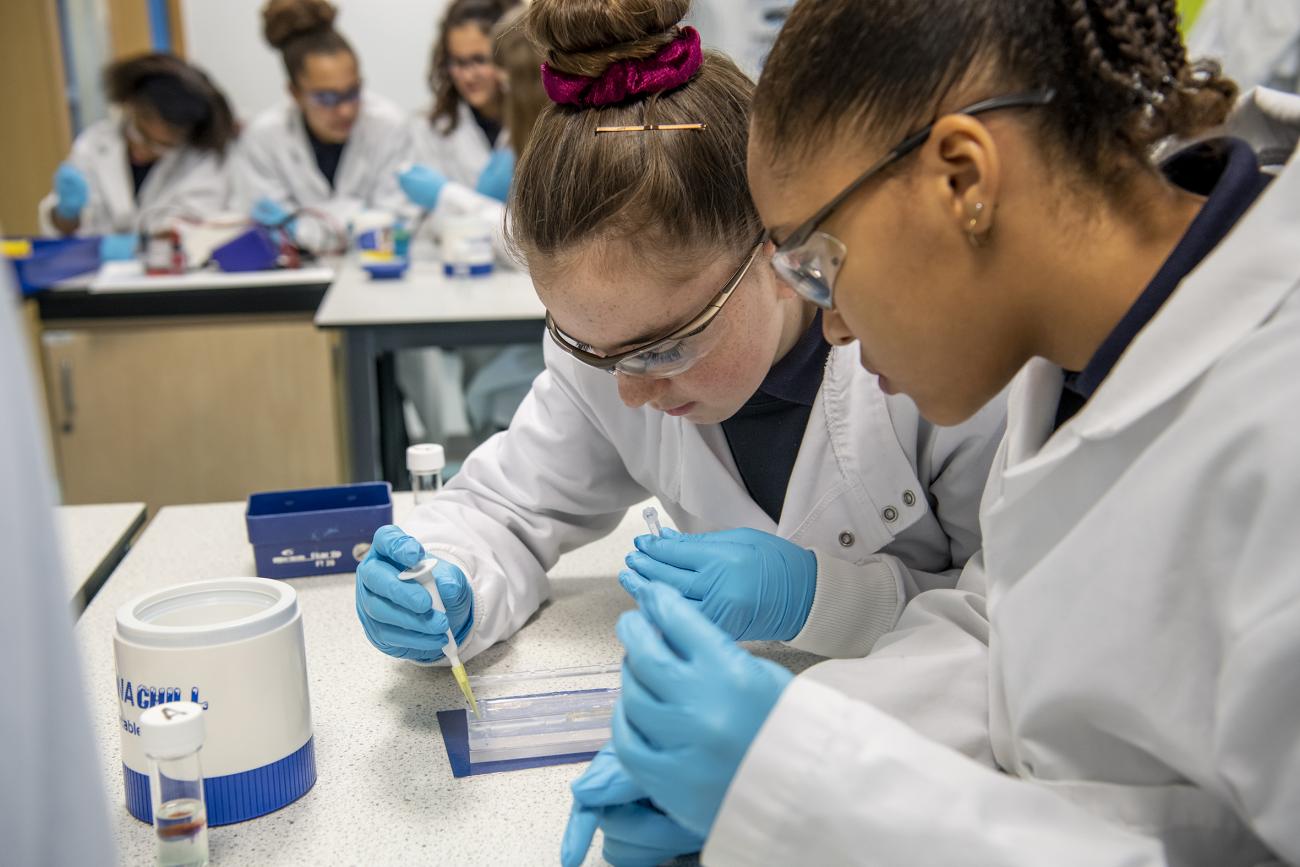Campaign Supporters in Action
Our Campaign for Social Science Supporters are among the most proactive and engaged producers and users of social science. On this page you can view and learn more about major projects, initiatives and activities that they are involved in. Find out how they apply their knowledge, expertise and research to address real world challenges, including supporting local communities, and the impact they are delivering for our society.
Supporting the Campaign for Social Science demonstrates a strong commitment to the social sciences and signals a recognition of the value and power of research evidence from across the full spectrum of these disciplines.
Gold Supporters
View allSilver Supporters
An interdisciplinary team of researchers, including social scientists at the University of Aberdeen, are working with the Scottish Government to establish local climate assemblies in the north-east of Scotland. The assemblies give local people a say in how a just energy transition can be achieved for communities in the region. The project examines how climate assemblies can influence decision making in the region as part of a just transition that protects communities and is fair, inclusive and democratic.
In 2004, the Scottish Executive announced a review of eye care services as part of its commitment to eliminate avoidable blindness by 2020. After identifying that free services could potentially encourage more people to benefit from regular eye exams, the Government introduced free eye care at any high street optician in 2006.
A team of researchers from the University of Aberdeen initiated a project to examine the success of the free eye care policy and to identify if more people chose to have their eyes tested. The research raised awareness of socioeconomic inequalities that developed from introduction of the new policy and findings shaped the focus of the Scottish Government’s awareness-raising campaigns and informed key stakeholders such as the Royal National Institute of Blind People (RNIB Scotland) and Optometry Scotland.
Safety culture has to be central to the ethos of highways service providers that work with local authorities across the UK maintaining the road network. Psychologists from ARU are working on a joint project with one of the biggest highways companies in the business. Through a Knowledge Transfer Partnership, the team at ARU have examined health and safety culture in the company and involved its staff in the design of the new safety measures. ARU researchers are also supporting the company to find the best ways to implement the new measures.
ARU researchers have helped to improve the monitoring of convicted sexual and violent offenders. Social scientists at the university analysed data around further offending by those subject to Multi-Agency Public Protection Arrangements and looked at how well the process works in terms of information sharing. The project comes under the Safe and Inclusive Communities research theme at the university and it involved gathering a highly sensitive dataset of offenders across England and Wales dating back to 2014 to track reoffending patterns. As well as creating a unique set of data, the project also shares best practice and identifies areas for improvement, against a backdrop of an increasing case load and cuts to services.
The future of work is changing, with the pandemic catalysing a transition to flexible working. The call for businesses to behave in a way that is environmentally friendly and inclusive has also never been greater. University of Birmingham researchers are carrying out work that supports organisations to become more responsible in their practices and adapt to changes that are happening now and in the future.
With the unfolding events following Russia’s invasion of Ukraine, social scientists from University of Birmingham are sharing their insights and research on issues affecting Ukraine and the rest of the world. This includes exploring the impact of international sanctions, migration and displacement and implications for the economy.
Research at University of Bristol asks fundamental questions about the relationship between political power and the criminal justice system in France, where 600,000 people are convicted each year. The research focuses on crime and discrimination using analysis of large individual datasets to deconstruct judicial decisions while shedding light on the ‘demand for tougher justice’ captured in polls and politicians’ ‘zero tolerance’ speeches.
Since 2015, Bristol’s Personal Finance Research Centre (PFRC) has been exploring the ‘poverty premium’ (when households in poverty pay more for everyday goods and services) and promoting fair treatment of vulnerable consumers across industries. To date, this work has resulted in shifts in policy and practice, especially across the financial services and energy industries. The depth of coverage from Bristol’s research team is helping a range of businesses and regulatory bodies re-shape their treatment of those in vulnerable circumstances.
Each year rhinos are tracked, shot and mutilated in their hundreds by poachers, with the World Wide Fund for Nature suggesting that only around 27,000 non-captive rhinos still exist today – just 5% of the number that existed a century ago. Brunel University London has been using social science in its work with the NGO African Parks on tackling the problem. The Brunel research team has shown authorities that poaching is a security problem that can be tackled by improved sharing of information and intelligence between national parks. The data from Brunel’s research has changed the way parks pursue poachers.
Research by Brunel University has inspired the development of an uber-style phone app that helps motorbike taxi riders find careful drivers and makes the streets safer in Rwanda. The app uses GPS and gyroscopic data to log and rate drivers’ location and road behaviour in real time so passengers can hail motorcycle taxis based on their driver’s safety score. It borrows from research by Brunel University London into drivers’ lives and livelihoods and how they weigh up risk, safety and profit.
Following Brexit there were identified risks relating to environmental policy and governance in the UK. University of East Anglia has been informing discussions in parliaments at EU level and across the UK and its work has led to the establishment of new regulatory watchdogs covering all four nations of the UK. Today these watchdogs are helping to protect the environment and transform the landscape of UK environmental policy and governance.
UEA research into the organisation and operation of the EU administration has informed practices in both the European Commission, which develops, delivers and enforces policy, and the General Secretariat of the Council, or GSC, which supports the European Council and the Council of the European Union.
Working into later life is now a reality for most of us. But a longer working life doesn’t necessarily mean a healthier one. Research from University of Edinburgh is being used to help improve job quality and options for workers over 50. For example, the university’s work encouraged the Scottish Government to include age in its £5 million investment into the Workplace Equality Fund and was influential in developing Scotland’s Older People’s Framework and Gender Pay Action Plan.
Researchers from University of Edinburgh have used voting habits from the 2021 Scottish Parliamentary elections to assess for the first time the long-term impact of Scotland lowering the voting age to 16 in 2014. While the lower voting age has boosted participation in elections, standard patterns of inequality have re-emerged with those from higher socio-occupational classes more likely to vote. The research suggests a number of measures for governments to adopt to address this inequality, including highlighting the proven track record of providing a good civic education.
UK in a Changing Europe (UKICE), based in the Faculty of Social Science & Public Policy at King’s College London, has been an impartial, non-partisan and authoritative reference point since 2015 for those wanting to know more about the UK’s relations with the EU. It was produces and disseminates independent, rigorous and impartial social science research on the issues to inform public debate. UKICE has had a direct impact on decisions made in parliament, with its research cited in many debates in the House of Commons and by Select Committee members.
The King’s India Institute (KII) undertakes research within multiple social science disciplines including an investigation into why health is not prioritised in Indian policy and what can be done to strengthen political commitment to ensuring universal access to good healthcare in India. This research makes more visible the demands of voters and provides a starting point for the multifaceted approach that will be needed to rebuild India’s health systems following the COVID-19 pandemic.
Research at Lancaster University has shown that when it comes to Parliamentary debates, heart failure is lower on the agenda than pot-holes in pavements and roads. Heart failure (HF) has a lower public profile compared with other serious health conditions such as cancer and dementia, and Lancaster’s research is helping to raise awareness.
Lancaster University has launched the Racial Equity in Policy Network (REiPN) which draws on social science research to equip policymakers at every level with suitable information, tools and approaches to respond to racial inequalities and identify potential ways forward.
Research at University of Manchester set out to improve equality and diversity within the Greater Manchester Combined Authority (GMCA) and revealed the need for women in decision-making positions to improve policy action. Manchester’s research highlighted the lack of diversity in The Greater Manchester Combined Authority (GMCA), particularly in its representation of women. The research also discovered that having women in decision-making positions is key to policy action and recommended the establishment of a Women and Girls’ Equality Panel to operate within the GMCA.
Climate change can impact anyone, but some people are more acutely affected than others. The extent to which people are affected depends not only on their exposure to events like floods and heatwaves, but also on various forms of social vulnerability. Researchers at University of Manchester have developed a mapping tool to provide a practical way to measure climate disadvantage and identify vulnerable groups. The tool has been used to inform local planning and policy responses to climate change and has also informed the UK government’s Committee on Climate Change.
The coronavirus pandemic exposed many of us to the fear and uncertainty of confinement for the first time. Detention and displacement are the reality for many people fleeing persecution and war. In 2020, the OU and its partners created Covid Chronicles from the Margins, an online platform allowing migrants living in precarious circumstances during the pandemic to connect, share their stories and learn new creative skills using their mobile phones. The archive is now being used to support families displaced by the war in Ukraine.
Youth violence is a significant issue in England and Wales. Open University research is pioneering a new public health approach to holistically address youth violence, its deep-rooted causes and its economic and social impact, thereby helping to safeguard children across England and Wales.
Natural resources power our world. From aluminium to zinc, our global community needs these commodities to continue to travel and trade, to communicate and cure. Countries with substantial resource wealth could be in strong economic positions but this isn’t always the case. Oxford University research is helping to change that.
Through its Social Sciences Engagement Fellowships scheme, University of Oxford works closely with English Heritage to deliver activity within a framework of collaborative research and knowledge exchange activities to support a shared vision for sustainable conservation.
An intensive three-year project at Queen Mary University of London has led to deeper understanding of political party membership in Britain. Who joins or leaves a political party and why? What do parties think of their members and how does this impact their policies? And how does all of this play out in the media?
Research at Queen Mary University of London has explored accent bias, especially in the workplace. The research shows that British accents remain largely unchanged from 50 years ago and that the Received Pronunciation (RP) accent remains the most highly regarded. Meanwhile ‘Birmingham’ was rated the lowest and ‘Afro-Caribbean’, ‘Indian’, ‘Liverpool’ and ‘Cockney’ were all in the bottom 10. These accents align with urban working-class groups and ethnic minorities. The researchers have produced training tools to help employers avoid accent bias especially when recruiting.
In England almost a quarter of children start school without the language skills needed to flourish. Research at University of Sheffield is supporting the creation of accessible materials to help parents with their child’s language development at home.
Research at University of Sheffield is helping government, councils and local authorities design better social policy interventions through mapping a new way through employment and health support for those most in need.
Geographers from University of St Andrews are informing the development of sustainable land management in Scotland. The team has analysed methods and tools to assess progress against the UN Sustainable Development Goals and pointed to ways in which they interact. For example the project advises on approaches to supporting changes in people’s behaviours, such as food choices, while also addressing structural changes, such as creating cycle lanes.
Psychologists at University of St Andrews have discovered through their research how people with advanced dementia could be helped to interact through a non-verbal communication technique known as ‘Adaptive Interaction’. In the latter stages of dementia, those living with the condition can lose the ability to use and understand spoken language, however this research has found an alternative way to facilitate connection and bring comfort.
The STEP UP project at University of Strathclyde is an energy and sustainable city planning programme that assists cities enhance their sustainable energy action plans and integrate energy planning into their sustainable city planning. The programme works together with local government, research and commercial partners in the European cities of Ghent, Glasgow, Gothenburg and Riga.
University of Strathclyde researchers have been providing a series of Global Entrepreneurship Monitor (GEM) reports to help policymakers understand how the pandemic has impacted entrepreneurship across 38 economies globally. GEM data has been
consistently used by government officials across the UK and there has been particular interest around gender, ethnicity and immigration.
University of Sussex research on the effectiveness of disrupting the online activities of terrorist and violent extremist groups is having an impact on international counter-terrorism policies. The Home Office is now using this research to give guidance to internet companies in the UK and internationally on how to disrupt extremist activity on their sites.
Research at University of Sussex has found that Universal Credit has cost society £465 million and increased repossessions and criminality. The research offers some practical recommendations for reforms to the Universal Credit system. For example it suggests minimising unnecessary payment delays to recipients, which can hugely affect people already struggling. It also suggests that imposing financial sanctions on Universal Credit recipients in some cases may backfire, leading to an increase in acquisitive crimes.
Swansea University research is informing a recalibration of the way governments, UN agencies and international non-governmental organizations (INGOs) measure the effectiveness of national and international drug and crime control policies. The project promotes evidence and human rights based drug policy through the comprehensive and rigorous reporting, monitoring, and analysis of policy developments at national, regional and international levels.
Swansea University has been working with the Welsh Government to lead a team of partners from HE and practice in Wales in undertaking a review of the Welsh education system. Focusing on leadership development, the review is designed to help the Welsh education system improve performance.
UCL research has shown the importance of digital technology in the public’s relationship with government and politics, shaping the digital design and research culture across UK government departments. The research has made it clear that technical systems are at the heart of the relationship between the public, politics, and governance.
Research at UCL has underpinned a rapid growth in the use of citizens’ assemblies at all levels of government, demonstrating their ability to deliver effective public engagement. Citizens’ assemblies meet to learn about an issue, discuss it in depth, draw conclusions, and report recommendations to decision-makers. UCL research has shown how the model can be most effectively applied in the UK context.
Sporting and musical events often see a huge demand for tickets, with many willing to pay a premium to get access. Secondary sellers, both legitimate and illicit, fill this gap in the market and make a large profit. A University of Warwick report has helped the Government reform ticketing practice and better protect consumers from secondary sellers trading tickets at inflated prices.
The world of intelligence is changing faster than ever before and with ‘big data’ dominating the intelligence landscape, public concerns about spying have grown. Researchers at University of Warwick have advised governments across the world on how to adapt to this new age.
Studies carried out by UWE Bristol have helped promote and strengthen the position of Britain’s Overseas Territories (OTs) in the aftermath of Brexit. Research considered the political, economic and social impacts of Britain leaving the European Union (EU) on the territories, and how they could be mitigated.
UWE Bristol has worked with statutory and charitable organisations in the UK, Latvia and New Zealand to evaluate how different approaches impacted the rates of reoffending among people convicted of sexual offences. This research has helped to positively change practice in each country.
Bronze Supporters
-
INSTITUTION:
RESOURCE:
-
City, University of London
Improving data on national population, mortality trends, and helping UK pension funds reduce their costs View -
Durham University
NHSA mental health report - £2bn cost of mental ill health ‘parallel pandemic’ View -
University of Leeds
Priority places for food - identifying the places where support is most needed to help people access affordable food View -
London School of Economics
Helping to improve socio-economic diversity in the television industry View -
Royal Holloway, University of London
Identifying the most important issues across Parliamentary constituencies View -
University of York
Evaluating the impact of extending working hours View


